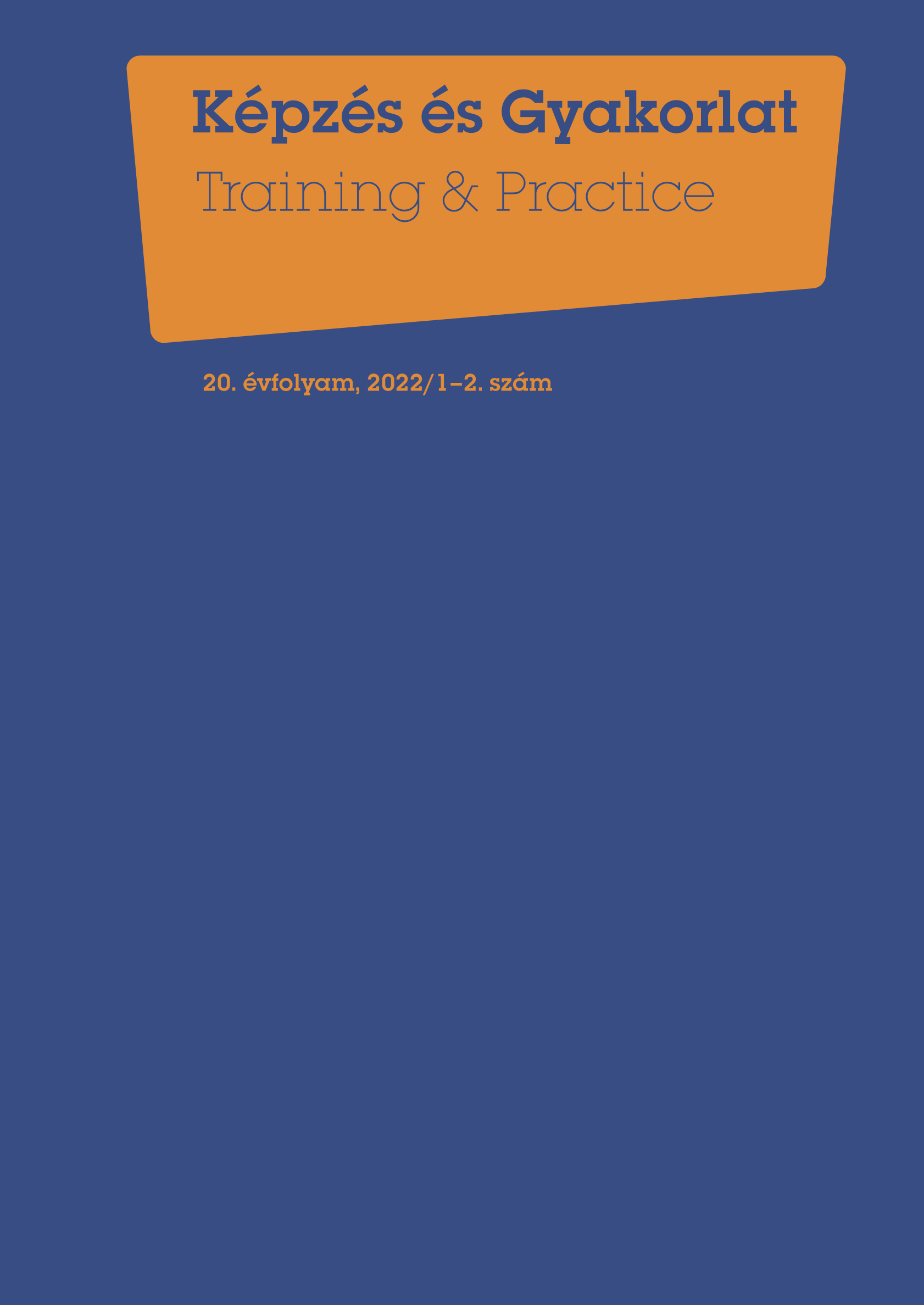Concept Map and Mindmap Supported Geography Learning
DOI:
https://doi.org/10.17165/TP.2022.1-2.6Abstract
Nowadays gaining knowledge and developing skills are unthinkable without the acquirement of learning techniques. The method of the mind map and concept map is built on associative learning. In doing so by restructuring the curriculum we can create our own system with its logic. That is why stamping is much more effective. While making the former we connect the thoughts to a central concept, the latter is a stricter genre and contains keywords and lines indicating their relations; its structure is hierarchic. They are helpful in the systematisation, and integration of new knowledge components into the old ones which is particularly useful when it is about learning abstract concepts and processes. This paper is on the usage of mind maps and concept maps in geography syllabuses and textbooks; furthermore, their usability in the classes.
References
Alduais, A.M.S. (2018). Teaching and Learning Vocabulary: Insights from Learning Styles and Learning Theories. Journal of Child & Adolescent Behavior, 6. évf. 1. sz. DOI: https://doi.org/10.4172/2375-4494.1000370
Awofala, A.O.A. (2011). Effect of Concept Mapping Strategy on Students’ Achievement in Junior Secondary School Mathematics. International Journal of Mathematics Trends and Technology, 2. évf. 3. sz., pp. 11–16. [online] http://www.ijmttjournal.org/Volume-2/issue-3/IJMTT-V2I3P504.pdf [2022. március 13.]
Barabási, T. (2013). Tanulási stílusok és modellek. In: Juhász, E. – Pete, N. (szerk.), Tréningek a tehetséggondozásban, pp. 61–86. Szeged-Debrecen: Belvedere Meridionale [online] http://acta.bibl.u-szeged.hu/65615/1/treningek_a_tehetseggondozasban_061-086.pdf [2022. március 13.]
Bölcskey, M. (2016). Állóképszerkesztők online környezetben. In: Forgó, S. (szerk.), A közösségi média az oktatásban. Elektronikus médiumok és tananyagok, pp. 189–214. Eger: Médiainformatika Intézet. [online] http://p2015-5.palyazat.ektf.hu [2022. március 13.]
Buzan, T. (2018). Mind Map Mastery: The Complete Guide to Learning and Using the Most Powerful Thinking Tool in the Universe. United Kingdom: Watkins Media.
Cuevas, J. (2015). Is learning styles-based instruction effective? A comprehensive analysis of recent research on learning styles. Theory and Research in Education, 13. évf. 3. sz. pp. 308–333. DOI: https://doi.org/10.1177/1477878515606621
Csapó, B. (2002). A tudáskoncepció változása: nemzetközi tendenciák és a hazai helyzet. ÚJ PEDAGÓGIAI SZEMLE, 52. évf. 2. sz. pp. 38–45. [online] https://epa.oszk.hu/00000/00035/00057/2002 [2022. március 13.]
Ford, N. – Chen, S.Y. (2001). Matching/Mismatching Revisited: An Empirical Study of Learning and Teaching Styles. British Journal of Educational Technology, 32. évf. 1. sz., pp. 5–22. DOI: https://doi.org/10.1111/1467-8535.00173
Gerlang, V. (2020). Vele vagy nélküle? A középiskolai földrajztankönyvek tanulási folyamatban betöltött szerepének vizsgálata. GeoMetodika, 4. évf. 3. sz. pp. 17–32. DOI: https://doi.org/10.26888/GEOMET.2020.4.3.2
Habók, A. (2009 a). A fogalmi térképek alkalmazása az értelemgazdag tanulás elősegítésére [PhD értekezés tézisei]. Szegedi Tudományegyetem, Szeged [online] http://doktori.bibl.u-szeged.hu/1090/3/habok_tezis_hu.pdf [2022. március 13.]
Habók, A. (2009 b). Egy térképező technika hatásának vizsgálata általános iskolában. Iskolakultúra, 11. sz. pp. 77–88. [online] http://real.mtak.hu/58026/1/8_EPA00011_iskolakultura_2009-11.pdf [2022. március 13.]
Hung, P.H. – Hwang, G.J. – Su, I.H. – Lin, I.H. (2012): A concept-map integrated dynamic assessment system for improving ecology observation competences in mobile learning activitie. TOJET. The Turkish Online Journal of Educational Technology, 11. évf. 1. sz. pp. 10–19. [online] http://www.tojet.net/articles/v11i1/1112.pdf [2022. március 13.]
Kolb, A.Y. – Kolb, D.A. (2005). Learning Styles and Learning Spaces: Enhancing Experiential Learning in Higher Education. Academy of Management Learning & Education, 4. évf. 2. sz., pp. 193–212. DOI: https://doi.org/10.5465/AMLE.2005.17268566
Lappints, Á. (2002). Tanuláspedagógia. A tanulás tanításának alapjai. Pécs: Comenius BT. Osman, K. – Wahidin – Meerah, S.M. (2013). Concept mapping in chemistry lessons: Tools for inculcating thinking skills in chemistry learning. Journal of Baltic Science Education, 12. évf. 5. sz. pp. 666–681. DOI: https://doi.org/10.33225/jbse/13.12.666
Pashler, H. – McDaniel, M. – Rohrer, D. – Bjork, R. (2008). Learning Styles: Concepts and Evidence. Psychological Science in the Public Interest, 9. évf. 3. sz. pp. 105–119. DOI: https://doi.org/10.1111/j.1539-6053.2009.01038.x
Pritchard, A. (2009). Ways of learning: Learning theories and learning styles in the classroom (2nd ed.). London: Routledge, DOI: https://doi.org/10.4324/9780203887240
Szilveszter, L. Sz. (2012). Egyetemi hallgatók által készített fogalmi térképek típusainak és szerkezeti jellemzőinek összefüggése a tudományos ismeretek elsajátításának színvonalával. Pedacta, 2. kötet, 1. sz. pp. 21–30. [online] https://www.researchgate.net/publication/232262165 [2022. március 13.]
Tóth, P. (2011). Tanulásmenedzsment és önszabályozó tanulás. Óbuda University e‐Bulletin, 2. évf. 1. sz. pp. 427–448. [online]
Zsom, B. (2013). A hazai információs társadalomfejlesztési dokumentumainak vizsgálati lehetőségei tartalomelemzési módszerekkel. Földrajzi Közlemények, 137. évf. 1. sz. pp. 40–50. [online] forrás [2022. november 02.]
Arday, I. – Czifrusz, M. – Horváth, T. (2020). Földrajz 9-10. tankönyv I. kötet. Budapest Oktatási Hivatal. [online] https://www.tankonyvkatalogus.hu/pdf/OH-FOL910TA_I__teljes.pdf [2022. március08.]
Arday, I. – Czifrusz, M. – Horváth, T. (2021). Földrajz 9-10. tankönyv II. kötet. Budapest Oktatási Hivatal. [online] https://www.tankonyvkatalogus.hu/pdf/OH-FOL910TA_II__teljes.pdf [2022. március 08.]
Makádi, M. (2018). Tanári kézikönyv. Budapest: EKE – OFI [online] https://www.tankonyvkatalogus.hu/pdf/FI-506010901_1__kezikonyv.pdf [2022. március 08.]
Földrajz Kerettanterv az általános iskolák 7-8. évfolyamára (2020) [online] forrás [2022. március 08.]
Földrajz Kerettanterv a gimnáziumok 9-10. évfolyamára (2020) [online] forrás [2022. március 08.]
Downloads
Published
Issue
Section
License
Copyright (c) 2022 Gerlang Vivien

This work is licensed under a Creative Commons Attribution-NonCommercial-NoDerivatives 4.0 International License.












